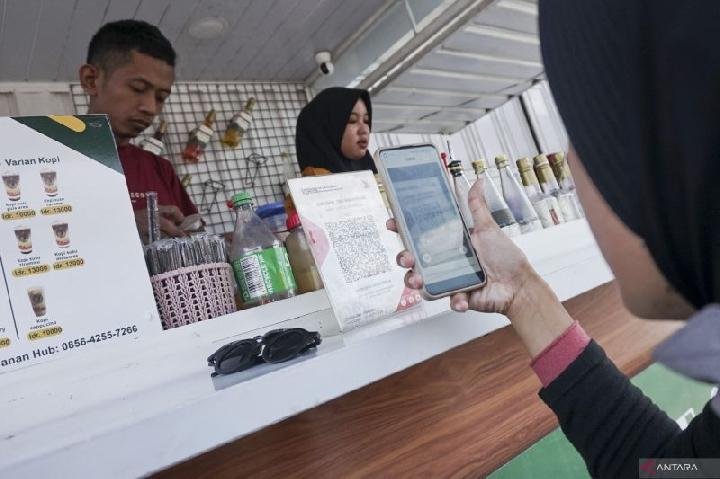TEMPO.CO, Jakarta – University of Pembangunan Nasional Veteran Jakarta economist Achmad Nur Hidayat believes that the Indonesian government has a strong justification for maintaining the Quick Response Code Indonesian Standard (QRIS).
His remarks were made in response to the United States government’s view that QRIS acts as a trade barrier.
Achmad explained that QRIS is not merely a payment tool, but a digital public infrastructure that unifies various electronic payment systems nationwide.
“In the context of a developing country like Indonesia, where financial inclusion is a major challenge, QRIS has become one of the important catalysts in fostering an inclusive digital economy,” Achmad stated in a written release on Monday, April 21, 2025.
He pointed out that prior to QRIS, transactions involving international networks often came with high costs due to foreign switching, which placed a burden on consumers and micro, small, and medium enterprises (MSMEs).
The adoption of QRIS has lowered these transaction costs and made it easier for informal businesses to participate in the digital financial ecosystem.
Achmad also highlighted a contradiction in the United States’ stance on QRIS. While the U.S. advocates for international system integration, it appears hesitant to adapt to local standards.
“Instead of forcing Indonesia to adopt global standards, foreign companies can innovate to align their services with QRIS. Incapability to adapt to local policies is actually the root of the problem,” he said.
Bank Indonesia has also addressed the issue following the U.S. concerns about QRIS. According to Senior Deputy Governor Destry Damayanti, Indonesia’s willingness to collaborate on QRIS and other fast payment systems depends on the readiness of each respective country.
“So, we do not discriminate. If America is ready, we are ready, why not?” Destry said to reporters during a Financial Education event for Indonesian Migrant Workers at the Dhanapala Building in Jakarta on Monday, April 21, 2025.
Destry added that Visa and Mastercard, both based in the United States, still hold a dominant presence in Indonesia. However, she did not elaborate on any specific steps Bank Indonesia might take in response to the U.S. complaints.
The U.S. criticism of QRIS was outlined in the National Trade Estimate Report on Foreign Trade Barriers 2025, published on March 31, 2025. The report, issued by the United States Trade Representative (USTR), noted that American banks and payment service providers felt excluded from the policy-making process regarding QRIS.
“International stakeholders were not informed of the potential changes resulting from this policy or given the opportunity to provide input on this system, including how QRIS could be designed to connect with existing payment systems,” USTR wrote.
Editor’s Choice: A Look at QRIS, Recently Cited as Barrier to U.S.-Indonesia Trade
Click here to get the latest news updates from Tempo on Google News
